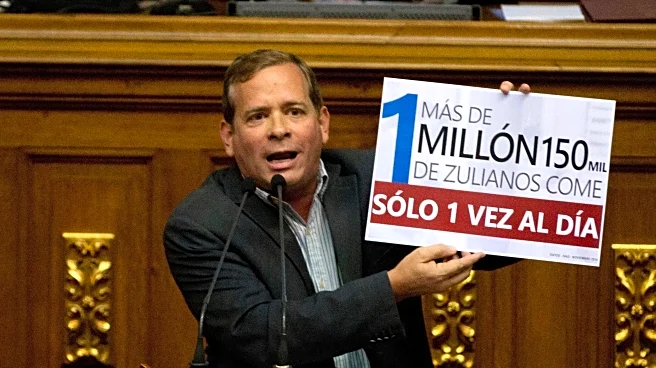What is the story about?
What's Happening?
The Israeli government is facing a complex situation as it prepares to release Palestinian prisoners in exchange for Israeli hostages held by Hamas in Gaza. This decision comes after a ceasefire agreement following two years of conflict. Among those set to be released are militants convicted of deadly attacks, including those involved in the 2010 attack on Tal Hartuv, who survived but lost her friend Kristine Luken. The exchange involves releasing around 2,000 Palestinians, including senior militants and those held without charge, while Hamas will release 48 Israeli hostages. This situation has sparked a debate among survivors and families of victims, who are torn between the joy of hostages returning home and the fear of future attacks.
Why It's Important?
The decision to exchange prisoners for hostages has significant implications for Israeli security and public sentiment. It highlights the ongoing struggle between ensuring the safety of citizens and addressing humanitarian concerns. The release of convicted militants raises concerns about potential future attacks, as seen in past exchanges where released individuals have returned to militant activities. This situation underscores the delicate balance the Israeli government must maintain between public safety and diplomatic negotiations. The broader impact includes potential shifts in Israeli policy regarding prisoner exchanges and the influence of public opinion on government decisions.
What's Next?
As the exchange proceeds, the Israeli government may face increased pressure from families of victims and survivors to reconsider its approach to prisoner releases. There could be calls for stricter measures to prevent released militants from re-engaging in hostile activities. Additionally, the government may need to address the emotional and psychological impact on survivors and families who feel betrayed by the release of those responsible for attacks. The situation may also influence future negotiations with Hamas and other groups, potentially affecting Israel's security strategy and diplomatic relations.
Beyond the Headlines
The ethical and legal dimensions of prisoner exchanges are complex, involving considerations of justice, deterrence, and reconciliation. The release of militants challenges the notion of accountability and raises questions about the effectiveness of punitive measures in preventing future violence. This situation also reflects broader cultural and societal tensions within Israel, as citizens grapple with the moral implications of such exchanges. Long-term shifts may include changes in public attitudes towards government policies and increased advocacy for victims' rights and security measures.

















